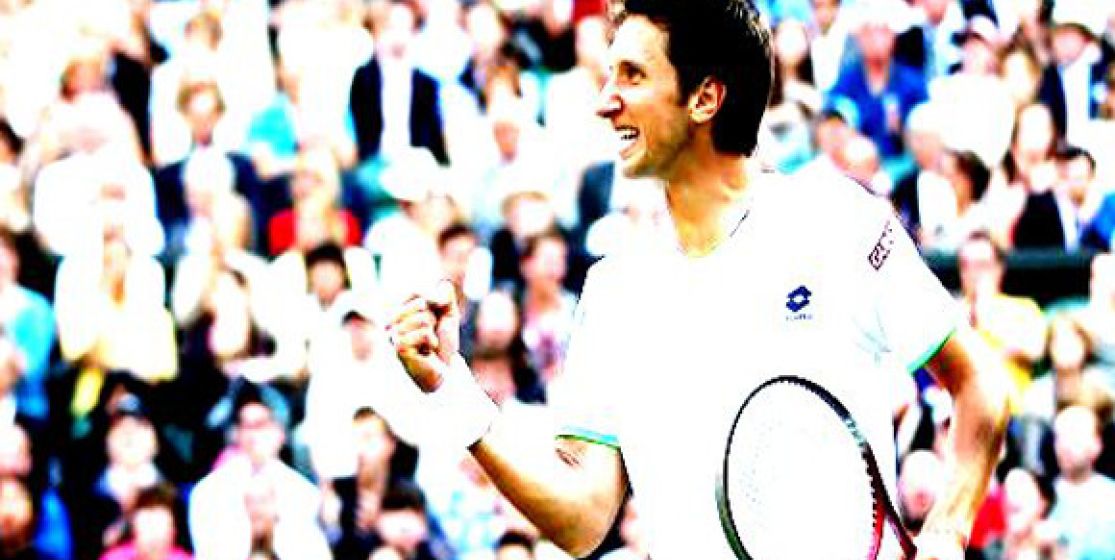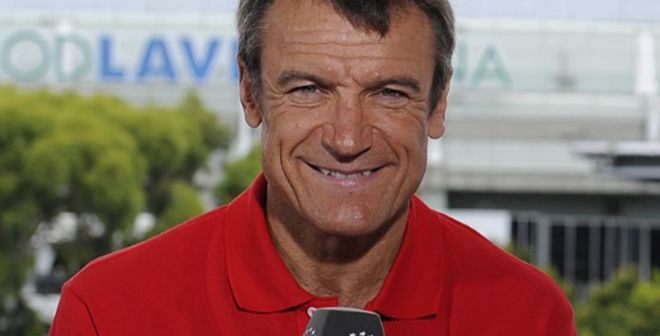I find it funny in tennis that fans and the media get a thrill out of an upset and say it’s good for the game and then bemoan the fact that as a tournament progresses and a few of the big names are missing because of upsets, say “ugh that’s boring, there’s no one left in the event”.
Get a grip people you can’t have your cake and eat it too. What is it you want, the upsets or the big names battling it out in the latter rounds?
And what is it with these players who score the upsets? They get their Andy Warhol moment (15 minutes of fame) and then withdraw into their own shells. Players take note, if you are going to upset the apple cart, and no one is suggesting that you should not have a darn good crack at it, then don’t just crumble in the next round. Do something with the attention you have garnered.
It is a similar situation with a player winning a title one week and then getting dumped in the first round the next week. Obviously I am not talking about the regulars, it’s the guys and girls who suddenly make a break through and the media jumps on a bandwagon and says how amazing they are and proclaim them as the next big star.
Remember my blog here on We Are Tennis about Grigor Dimitrov during Madrid when he upset Novak Djokovic and then lost in the next round? I said then, we all know he is a fantastic talent and exciting to watch but he is not a big star yet. In fact Dimitrov says the same thing about his star status.
Time and again we see players from the middle to lower ranks score great moments for their individual career but then don’t continue with things. This year’s Wimbledon was full of such moments; in fact let’s go back to Wimbledon last year with that massive upset of Rafa Nadal by Lukas Rosol in the second round, he lost to Philipp Kohlschreiber in the third round.
But let’s look at Wimbledon 2013 as it’s the most recent situation. Sergiy Stakhovsky on the Centre Court knocks off Roger Federer in the second round. What happens but loses to Jurgen Melzer next round. Ernests Gulbis beats Jo Wilfried Tsonga in the second and loses to Fernando Verdasco. Steve Darcis bounces out Nadal in the first round and gives Lukas Kubot a walkover in the next round.
It happened in the women’s as well; Michelle Larcher de Brito upsets Maria Sharapova and crashes to Karin Knapp.
Stakhovsky suggests his win over Federer was a “curse” because he has done nothing, zippo, since then. But it’s not just at the Slams such things happen. Federico Delbonis upsets Federer and then loses in the final of Hamburg and loses in second round of Gstaad. And then there was Daniel Brands who scores a whopping upset also over Federer (after all the fanfare of him playing in Gstaad) and then bombs in the next round.
There is a reason why they are ranked where they are. These guys do not have the consistency. If they kept playing the way they did in the upset matches they’d be top 15.
They are not used to being in such situations and as a result do not know what to do and how to handle the situation. They suffer what is known as a “let down”. They have got themselves into such a level of focus about playing a big name and then in getting through a big name that it’s deflating once it is all over.
Mentally they are not able to deal with the attention and quite possibly they may think they are better than they are. The player is on cloud nine after an upset win and they try to do more than they need to in the next match or the next tournament after a title win.
Being able to handle the highs is incredibly important and when it is not second nature to them, things fall in a screaming heap. That is why Djokovic, Nadal, Murray, Del Potro, Federer are where they are. It has nothing to do with how they hit the ball, or their physical game, it is everything to do with how their brain is working and how they approach the next round. That’s what it is all about.
The attention – I can’t even say added attention because so many of them have hardly had any attention – that is cast on these players is difficult to handle; the slaps on the back, the handshakes of congratulations and all that goes with a big win. The player is popular for that moment but getting past that Andy Warhol moment is what it is all about and rarely is that achieved.






